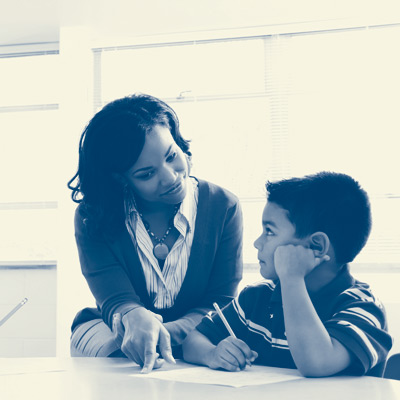11 Ways to Improve Your Kid’s Public School
But so should parents—as many already are.
1. Fix something old.
Greenfield Elementary mom Christina Stasiuk led an effort to overhaul the outdated library that included parent-volunteer redecorating; a remodel with “reading circle” areas, a local sculptor’s artwork and a bank of computers; new books; and a “weeding out” of old ones, including some that hadn’t been checked out in 40 years.
2. Build something new.
There is no library at the Philadelphia Performing Arts Charter School, where Roxanne Patel Shepelavy’s daughters go. But right next door is the Fumo Family Branch of the Philly Free Library, so Shepelavy worked with its children’s librarian to organize a book club for second- and third-graders, with meetings at the branch.
3. Be the teacher’s pet.
At Society Hill’s McCall Elementary and Middle School, Lauren Summers takes the role of class parent to new levels; she and another mom, who visits the classroom on a regular basis, take care of administrative tasks and home-classroom communiqués, so the teacher “can focus on the students.” Summers also puts together and emails a weekly newsletter with messages from the teacher and notes from the in-
classroom mom.
4. Make it prettier.
Parents at William M. Meredith Elementary in Queen Village are overseeing a million-dollar redo of the exterior of the school according to a master plan by a volunteer professional design team. Improvements include new play areas, entrances and plantings.
Digital Vision/Photodisc/ThinkStock5. Share your expertise.
Alicia Kopp, a mom at West Philly’s John M. Patterson Elementary, elicits parents and friends to visit her kids’ classrooms and demonstrate talent in everything from yoga to fashion to cooking to art, complete with a hands-on component—and maintains a master list of guests for teachers. Kids frequently beg for visitors to come back—and they do.
6. Teach kids tech.
The Urban Technology Project, which grew out of an after-school club at Edison High, holds regular “MentorHacks,” sponsors in-school clubs that teach kids all about computers, and helps them spread that knowledge through their communities. Start a chapter at your school; if one already exists, offer equipment, knowledge or support.
Andy Cross/Denver Post/Getty Images7. Bring recess back.
Meredith mom Sabrina Rubin Erdely says, “Recess is woefully brief and austere here. The kids have a hard time figuring out what to do, and by the time they dream up a game to play, it’s time to go back inside.” Parent volunteers stepped up to organize and oversee daily kickball games for anyone who want to play. Erdely’s son “lives for recess kickball,” she says.
8. Rope your employer in.
Last fall, a collection drive at FMC Corporation, a Center City chemical firm, netted $10,000 that paid for 125 volcano-
making kits—baking soda, salt, calculators, paper—that let sixth- and seventh-graders throughout the district have an explosive good time, and sparked their appetite for science.
9. Give money.
James “Torch” Lytle, a retired public-school teacher and principal, now a professor at Penn’s Graduate School of Education, points out that sending your kid to a top-notch private school costs more than half a million bucks from kindergarten through senior year. Viewed from that perspective, he says, “Parents who keep their kids in public schools can afford to contribute money to those schools.”
10. Go one-on-one.
Until you mentor a child, it’s hard to comprehend the opportunities for growth—on both sides. Ask your school’s guidance counselor about opportunities. Oh, wait, this is Philly. Philadelphia Futures runs a mentoring program for college-bound high-school kids in the district.
11. Bring parents together.
Longtime Philly schools volunteer and consultant Jay Cohen says the most important step you can take is to build communication with other
parents—via newsletters, websites, email lists, bar hangs, whatever you’ve got. “If you’re not connected to other parents,” he says, “something happens where parents believe school is the enemy. You all have to be on the same side.” When you are, you’re not just looking out for your own kids; it’s all for one and one for all.



